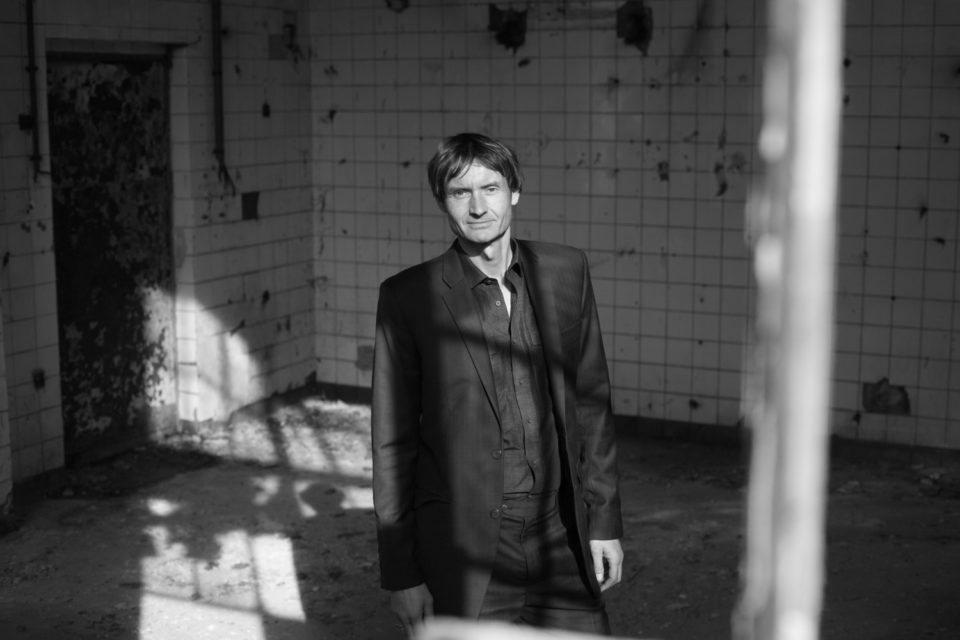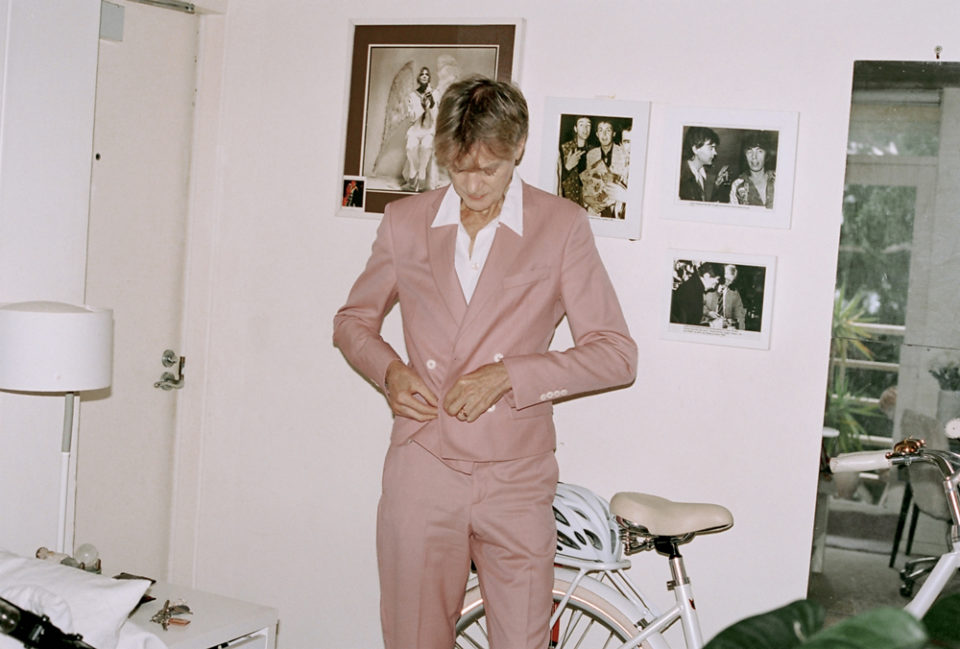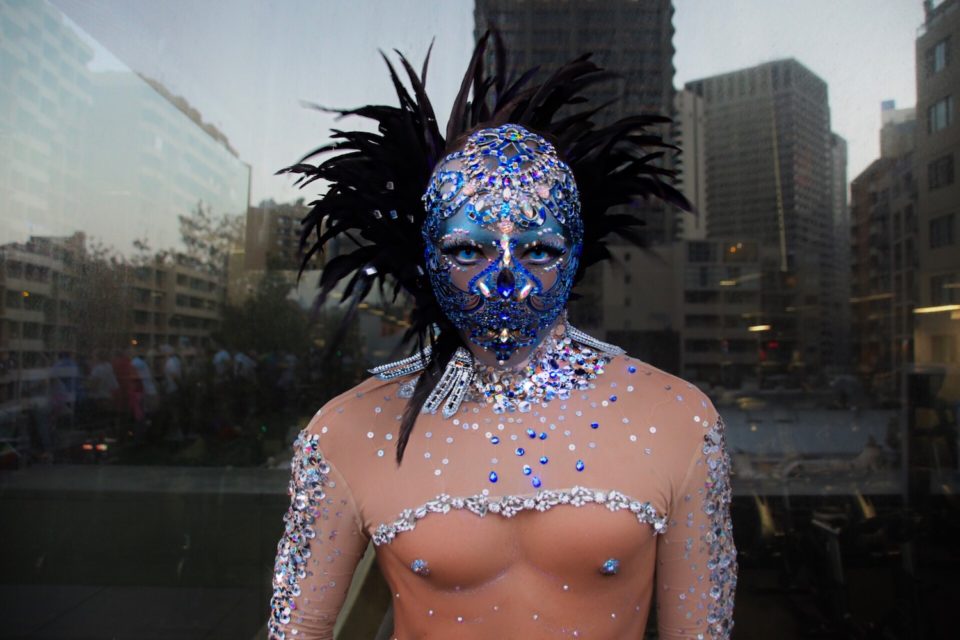Five years ago, Bronnie Ware, an end-of-life carer, wrote a list of the ‘The Top 5 Regrets of the Dying’. The list was read by millions of people, and turned into a book as well an endlessly popular Facebook meme that continues to be reproduced and commented on today. Steve Kilbey of The Church has always featured themes of mortality and spirituality in his searching, cosmically inclined music. Below is Ware’s list, and underneath it, an in-depth conversation that took place in Sydney between Ware and Kilbey.
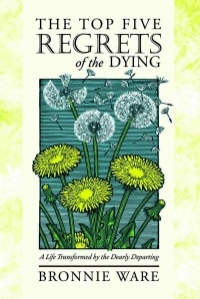
Bronnie Ware’s ‘The Top Five Regrets of the Dying’
1. I wish I’d had the courage to live a life true to myself, not the life others expected of me.
This was the most common regret of all. When people realise that their life is almost over and look back clearly on it, it is easy to see how many dreams have gone unfulfilled. Most people had not honoured even a half of their dreams and had to die knowing that it was due to choices they had made, or not made.
It is very important to try and honour at least some of your dreams along the way. From the moment that you lose your health, it is too late. Health brings a freedom very few realise, until they no longer have it.
2. I wish I hadn’t worked so hard.
This came from every male patient that I nursed. They missed their children’s youth and their partner’s companionship. Women also spoke of this regret. But as most were from an older generation, many of the female patients had not been breadwinners. All of the men I nursed deeply regretted spending so much of their lives on the treadmill of a work existence.
By simplifying your lifestyle and making conscious choices along the way, it is possible to not need the income that you think you do. And by creating more space in your life, you become happier and more open to new opportunities, ones more suited to your new lifestyle.
3. I wish I’d had the courage to express my feelings.
Many people suppressed their feelings in order to keep peace with others. As a result, they settled for a mediocre existence and never became who they were truly capable of becoming. Many developed illnesses relating to the bitterness and resentment they carried as a result.
We cannot control the reactions of others. However, although people may initially react when you change the way you are by speaking honestly, in the end it raises the relationship to a whole new and healthier level. Either that or it releases the unhealthy relationship from your life. Either way, you win.
4. I wish I had stayed in touch with my friends.
Often they would not truly realise the full benefits of old friends until their dying weeks and it was not always possible to track them down. Many had become so caught up in their own lives that they had let golden friendships slip by over the years. There were many deep regrets about not giving friendships the time and effort that they deserved. Everyone misses their friends when they are dying.
It is common for anyone in a busy lifestyle to let friendships slip. But when you are faced with your approaching death, the physical details of life fall away. People do want to get their financial affairs in order if possible. But it is not money or status that holds the true importance for them. They want to get things in order more for the benefit of those they love. Usually though, they are too ill and weary to ever manage this task. It all comes down to love and relationships in the end. That is all that remains in the final weeks, love and relationships.
5. I wish that I had let myself be happier.
This is a surprisingly common one. Many did not realise until the end that happiness is a choice. They had stayed stuck in old patterns and habits. The so-called ‘comfort’ of familiarity overflowed into their emotions, as well as their physical lives. Fear of change had them pretending to others, and to themselves, that they were content. When deep within, they longed to laugh properly and have silliness in their life again.
When you are on your deathbed, what others think of you is a long way from your mind. How wonderful to be able to let go and smile again, long before you are dying.
Steve Kilbey: What do you think happens after death? What is your personal belief? Or what have you observed with all these people dying?
Bronnie Ware: It’s definitely a great space to go to. The euphoria I have witnessed, not in everyone but on some people, has made me want to taste it.
S: Really? People on morphine or people who are straight?
B: Yeah, on morphine. Most of the people I looked after were dying of cancer or disease, so yes, lots had some sort of pain medication beforehand. The best I ever saw was a woman who had been on a conscious spiritual path for a number of years and she was quite rare among my patients. She had been in a coma for a number of days. And just before she passed she opened her eyes and looked to something on the ceiling with the most beautiful expression of joy, euphoria and recognition. Like a huge gasp of recognition.
S: Have you ever seen anyone go out in horror? Sort of like “no, no”?
B: I’ve seen some people in denial for a very long time until they were just so cactus and so ill that they couldn’t deny it any longer, and what I noticed was the actual extraction, when the spirit leaves the body, wasn’t a smooth one. In most cases death is a really quick and beautiful experience. There is just a bit of a shudder in the body sometimes – and sometimes they just close their eyes and there is no shudder at all, it’s just the breath stops. But the most noticeable in a good passing is there is a bit of a shudder then stillness. I did notice that those who had some sort of consciousness of the actual passing, the transition was loads smoother than those who didn’t.
S: What are your beliefs?
B: For me, I believe that we return to an incredible place of love and that the learning continues. And we may or may not come back again –
S: – depending on what we have figured out in this life?
B: Yeah. But I’m yet to meet anyone including myself who does not have more to learn so I assume that I will come back again.
S: Going back to the patients – would some tend towards religion at the end?
B: Some. I didn’t see huge awakenings in that regard, towards the end, unless they were already on the path, maybe that would deepen. But those who didn’t have a faith, I didn’t see anyone find God in the last week or two of their life. That’s just in my experience though.
S: So you began a journal – but after a while it occurred to you it could become a book that would be useful for people? A blog?
B: No not even then. I was writing a journal for my own healing because I was spending a lot of time sitting beside the bed of dying people. So I had a lot of time to write and I started noticing that common things were coming up in terms of regret. But I had no idea it was going to be a book – I was just doing my own healing and making my own observations.
S: Looking at the regrets – I don’t know them all off by heart – but it is basically do the things you wish you had done and don’t let other people say you shouldn’t do it.
B: Yes.
S: They’re all pretty obvious, but it took you to verbalise it… that’s an incredible thing?
B: Yes. I know, it is a really simply-written article. But it came at the time it was meant to and I think it gave people permission.
S: Like even me, I’m 62, I’m thinking there’s time for this and time for that; I can put these things off I know I’ll regret if I die and I didn’t do them; and I will listen to this idiot bossing me around because it behooves me now. I will work too much because I need the money right now; people say “go interview Bronnie Ware”, I better go and do that. So how can people really actualise this advice in their life, because we’re all aware we should be doing these things, we shouldn’t be doing these things, but how does one really actualise it?
B: I think if we can speak about death more as a society and as individuals and actually completely face death as best we can, as best we can take ourselves there to imagine it, then hopefully it will all be a huge wake up call. I know it has been for me. A huge wake up call to say ‘every single day that I get up is one day less’. A bonus, but one day less. We don’t have forever, we really don’t.
The other way we can get the courage to not have these regrets is to take one step at a time with life and rather than think so far ahead that we talk ourselves out of doing what we want to do. If you do it one small step at a time, as you grow into that step, the next step reveals itself, and the next step. So it’s not so daunting because you are growing into your readiness and making those changes step by step, rather than thinking ‘I have to have this whole barrel of courage to do something enormous and completely change who I am’ when really all you need to do is do it step by step.
S: Your book sold a lot of copies.
B: Yes, about a million; 29 languages and a movie.
S: I read that you’re not one of the rich people but you’re no longer one of the poor people either.
B: Oh right. Yeah, I guess so.
S: … and then you discovered you have rheumatoid arthritis. Can you tell us about that?
B: Yes. I was really blessed to conceive naturally and quickly at 44, became a first time mum at 45. I had a really healthy pregnancy, I got a publishing contract in the same 24-hours she [daugher Alena] was born. But in a month of her being born I was diagnosed with rheumatoid arthritis, with stiffness in the fingers and feet. Typing has actually kept it mobile but the greatest grief is that I can’t play guitar now.
S: Never again?
B: It’s my greatest fear and my greatest hope.
S: So you get rheumatoid arthritis and, from reading your new book Bloom, it seems that you actually develop a relationship with this disease. You actually go through a period of realising you should love it – but you can’t bring yourself to. And then in the end you go ‘I don’t love having you but I love what you’re teaching me.’ I had the same thing with heroin; I was an addict for 10 years, that was self-inflicted unlike what you had, but in the end it was the same thing. When I came out the other end and got off heroin, I didn’t bless being an addict or heroin but I could see that going through that awful process, I came out the other end richer – not financially! – but more well rounded and a better person.
B: Yes, well it’s made me so much more grounded and confident in myself to live the life I want to live. It really took having RA to give myself permission to say “no” without guilt. I say no to three quarters of what comes my way, because I know I have limits now – we all do but very few of us honour them.
S: At it’s worst, how bad was it?
B: Well, I couldn’t get up.
S: When you get in the nice warm bath and you let the water out and you’re sitting in an empty bath…
B: I was stuck, I couldn’t even use my arms to get myself up. My daughter at one-and-a-half tried to lift me up and was helping me get dressed. I was lying down having a cry one day and she came over and said ‘it’s OK mummy, I’m here, do you want me to get you a ginger juice?’ It broke my heart…
S: You’re a very humble layman with some very lofty ideas – and you’re expressing it in a way everyone can understand.
B: Well, I’m real. I’m not driven by fame and money, I’m driven by living a happy life. And I know how hard that can be.
S: Say this current tour for Bloom does really well. And the promoter rings up and says, ‘We can sell our three, four, five or those venues, let’s get back out and do it. Africa wants it, we can get gigs in America’ – how can you balance all that?
B: Well, I will. Because through having RA and – after looking after dying people, I went through suicidal depression –
S: No wonder.
B: Through all of that, I’ve learnt to receive. I could be speaking every single week in the speaking circuit in Australia, without fail, but I want to do my own events, because that’s what brings me joy. I might occasionally say yes to another event but mostly I want to create my own events because that’s what I do best.
S: A problem I have: I’m standing on stage with 1000 people, and this horrible little voice starts up, my ego, ‘look at you, you’re special, look at them they love you?’ Does that ever happen to you? And if it does, how do you shut it up?
B: I say thank you. I think this is great.
S: [Laughs loudly]. But don’t you ever go beyond that. ‘Look at all these people, they’re just lapping it up, look at the respect and reverence, and all the money and all the people who want to meet me?’ Doesn’t that ever get to you, don’t you lose the path?
B: I’ve come from a different place because I tried really hard to break through as a singer/songwriter and it was really traumatic for me. I never actually looked forward to a gig ever. I was in a really hard place in myself.
S: Do you get nervous?
B: No, I was baptised through fire. I did some of the worst, crappiest, awful gigs in the singer/songwriter scene that by the time I made it to the speaking stage, it was like, “Oh, that was my apprenticeship, this is really easy and beautiful, these people are here to see me.” And this is a welcoming scene. So I’m there now, singing raw, with no music, and getting the audience to sing with me. It is a high – there are times when I think, “I’m really good at this, this is actually fantastic.” But because there was so much trauma and pain getting to that point, I usually just feel so grateful and that’s where I come from.
S: You never forget the gratitude. The ego can’t drown that out.
B: Yes. Because there was so much pain in getting there.
S: Do you think it’s harder for someone who’s rich and successful to die than for someone who’s never had much?
B: No, I think you can be rich and successful if you also have connection to yourself. It’s harder to die if you have lived unconsciously.
S: I just imagine Rupert Murdoch on his deathbed thinking ‘I can’t die, I have got 400 hundred billion dollars and a beautiful wife and properties’ and it’s so hard for him to leave it. Where an old man in a boarding home with nothing at all, would say ‘well what do I have to lose? It can’t be worse than this.’ So having some setbacks in your life is a good thing, isn’t it?
B: I agree seeing it from that angle, but I also think that despite the busyness a Rupert Murdoch might have right up until his last days, at some point when the lights go out in that hospital, or that hospice bed, and he’s left there alone, even if there’s a carer sitting there quietly, and he’s left alone in his own thoughts, he’s still going to reflect on his humanness and how consciously he applied that. That’s what I mean. He might still think all the way until the end, I don’t want to die, I have all of this still to do – but at some stage, there is a person in there who will stop and think, ‘Damn. I wish I’d connected more’ –
S: There’s a saying in Narcotics Anonymous – don’t give up minutes before the miracle happens. So where are you at right now with RA?
B: I’ve been down the really dogmatic wellness path of only natural therapies. Then finally surrendered that and did go down the pharmaceutical path. I had to drop all my cynicism of that world and it gave me my mobility back and a vision of wellness. But I ended up getting lots of side effects from the pharmaceutical meds, so I eventually found my way to back to the Ayurvedic path.
S: OK, one last question. In another universe when Bronnie Ware was a successful singer/songwriter, didn’t nurse the dying, didn’t write any books. And then one day the doctor says, “you’ve got RA.” How would she have coped? What would she have done? If you’d been winning all along, would you have been able to overcome this so successfully?
B: I’ve always been a pretty positive person. I’ve always tried to turn things into the positive. But I think that if I wasn’t so accustomed to challenge and hadn’t already developed that skill of learning that, I’d probably have just said ‘fuck this’ and fought it, and battled with it. I still go through grief for my music, it’s one of the hardest things. After these events [I’m doing], I’m taking a few months off to just be. And hopefully have some connection time with my guitar. But [to answer your question] I think I would have had a lot more resistance and I would have been in a deeper place of despair and grief than what I have been.
S: Thanks Bronnie.
Steve Kilbey is currently working on his next album with The Church. You can view more of Steve’s artwork and find out about his music projects at thetimebeing.com
Bronnie Ware’s latest book is Bloom. She is hosting a meditation and storytelling evening on Thursday, 18 May, 7pm-10pm at the Lend Lease Darling Quarter Theatre, Sydney and Saturday, 20 May, 7pm-10pm at Tamara Yoga, Claremont Studio, 6 Gugeri St, Claremont, Perth.
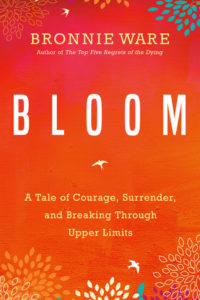
Bronnie Ware’s ‘Bloom’




